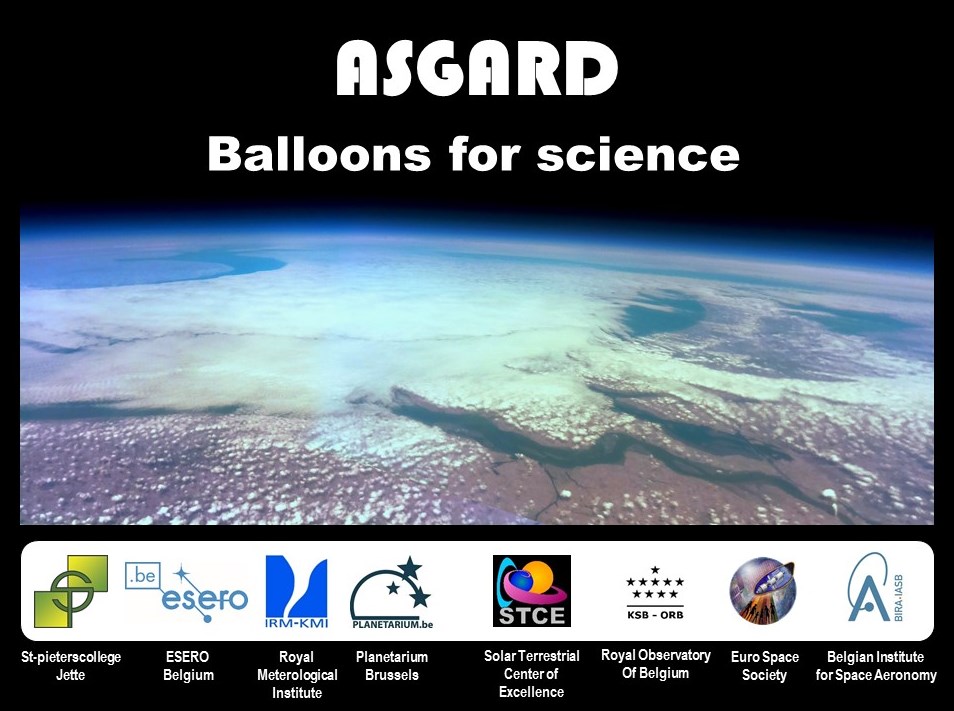
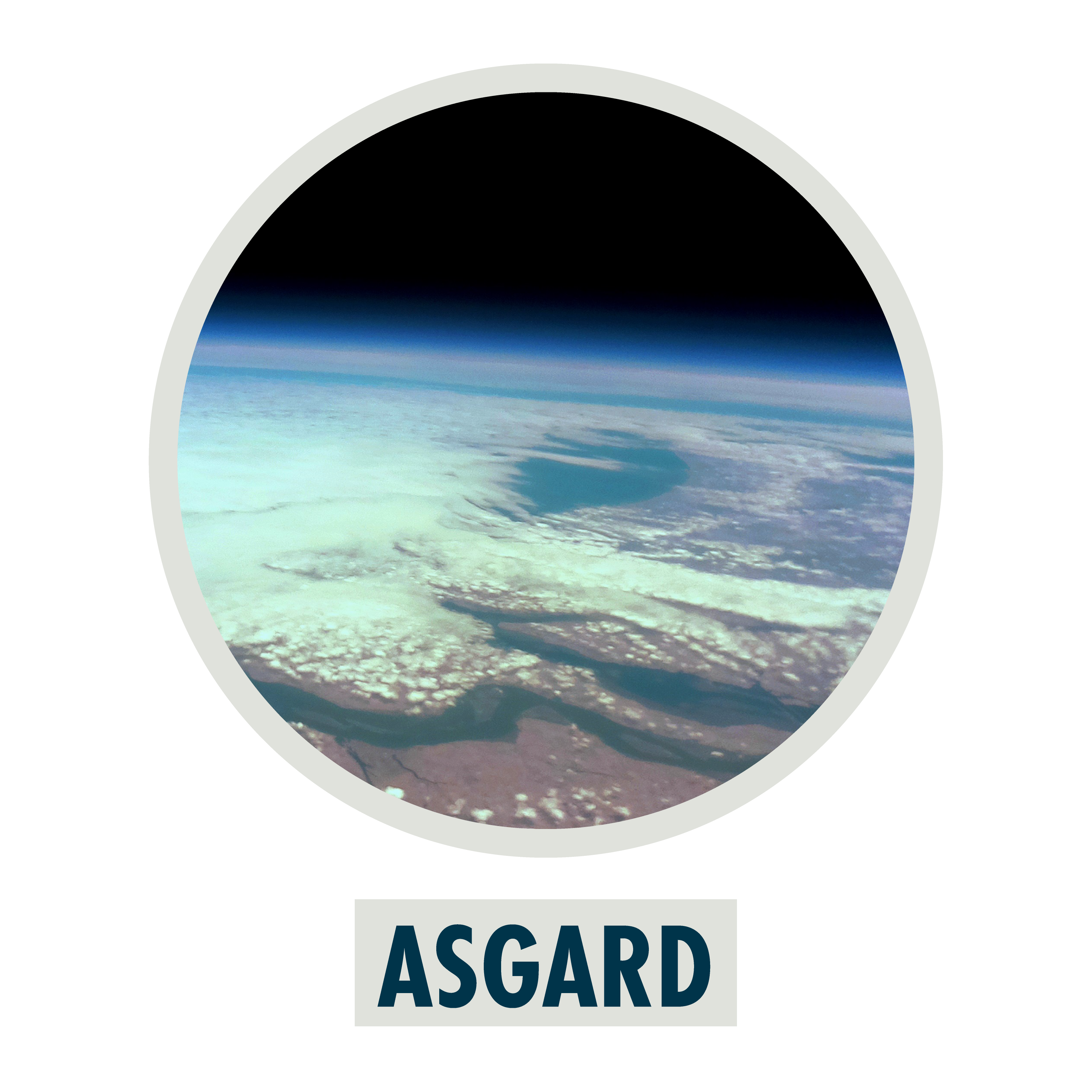

FLY YOUR OWN EXPERIMENT TO THE EDGE OF SPACE
WHAT?
- Send your self invented and selfmade experiment to the edge of space with a stratospheric balloon.
- Participating in ASGARD is very similar to a real science mission in space, performed by a team during one school year.
- ASGARD is no competition. The personal ambition of each team is to produce and test a well designed and well working experiment on the day of the flight, and to analyse the results after the flight.

WHO?
Who can participate?
- Age group 15-18 years old (secondary education, all study fields):
- +/- 20 teams are accepted.
- minimum 2 students, maximum 5 students per team (more students can participate at school, but max 5 can come to the launch days).
- Primary education, age group 10-11-12 years old:
- Maximum 2 teams are accepted.
- Max 1 complete class group per team.
- Every team can apply as ‘beginner‘ or ‘advanced‘.
- Most teams are from Belgium (all language communities). Foreign schools from anywhere in the world are welcome to join at their own cost.
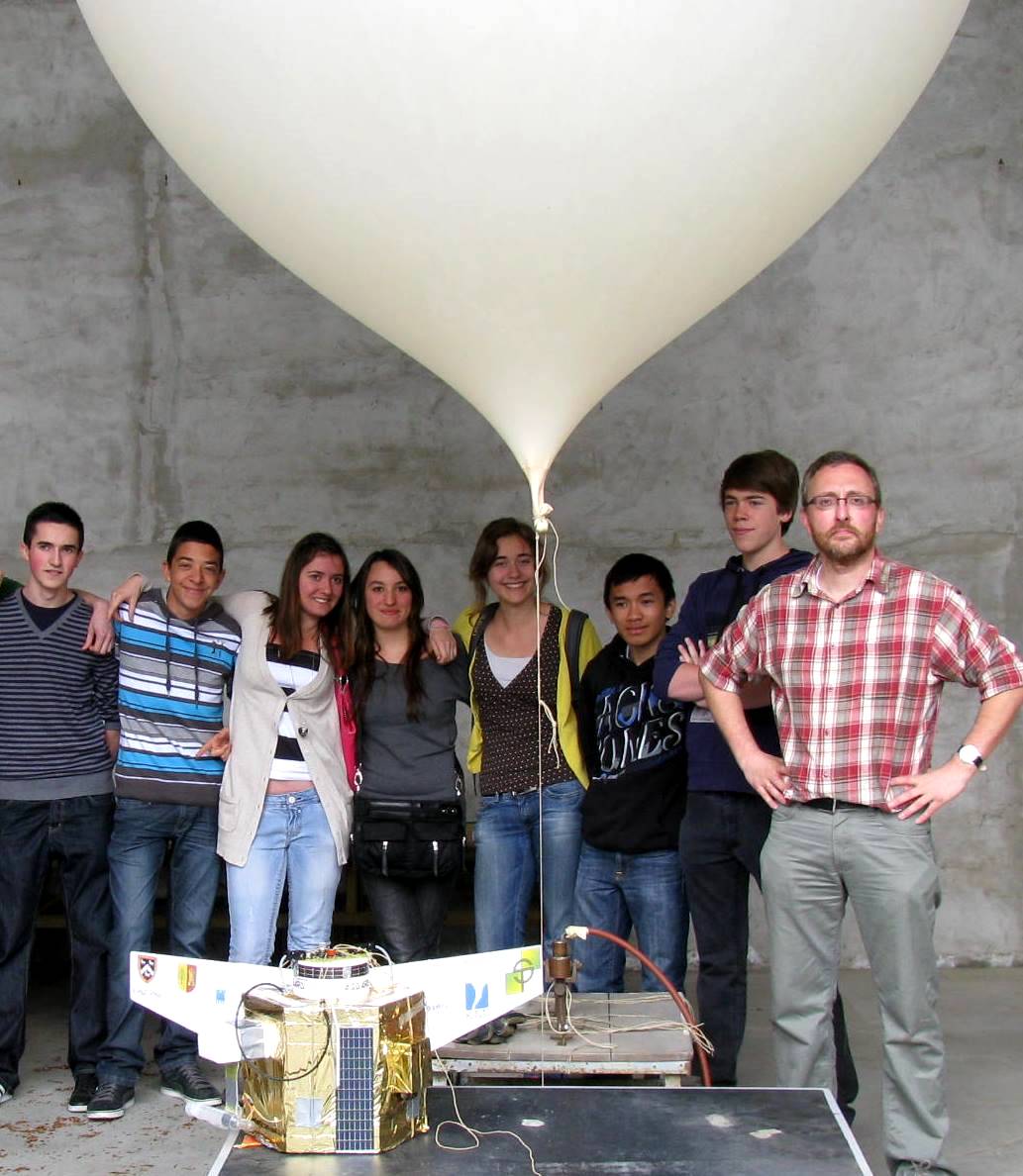
WHEN?
Most important dates:
- Send your proposal the latest at 11/11/2023.
- Build and test your experiment until it works perfectly well between December and April. Send us the necessary progress reporting.
- Come to the 3 launch days at 24+25+26/04/2024.
- Deliver a communication poster about your work before 31/05/2024.

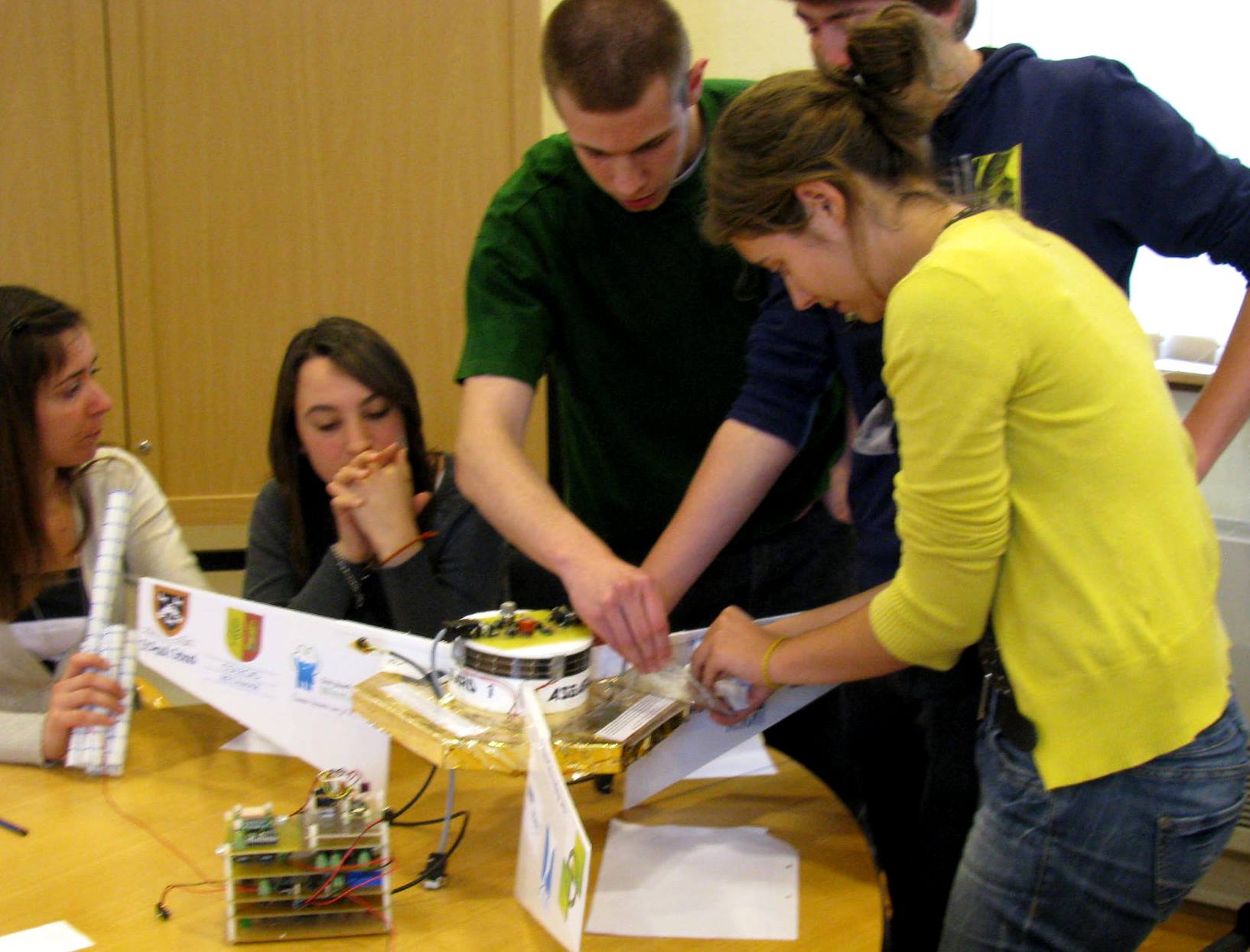
WHY?
Didactic value
- Skills: teamwork, planning, scientific method, communicating about your work, working in English.
- Learning content: Atmospheric science, physics, Earth science, ICT, programming, space sciences.
- STEM challenge: designing by trial and error, testing, problem solving.
Extra motivations
- A unique opportunity to fly your experiment to the edge of space, where the conditions are extreme, and in many ways similar to the surface of Mars.
- Work together with other motivated teams from different language communities and other countries (ASGARD is not competitive).
- Enjoy the unforgettable experience to be at the Belgian Space Pole institutes during launch days and meet professional scientists and their programmes.

HOW?
- Send us your proposal by filling in the application form. In previous years, most of the incoming proposals were accepted to participate (except if they are not realistic at all or very badly described).
- Make sure your team has a good planning and will be available on the launch days in Brussels/Ukkel.
- You will get the necessary instructions during your participation.
- Never hesitate to contact the organiser Erik or ESERO Belgium whenever you need help.
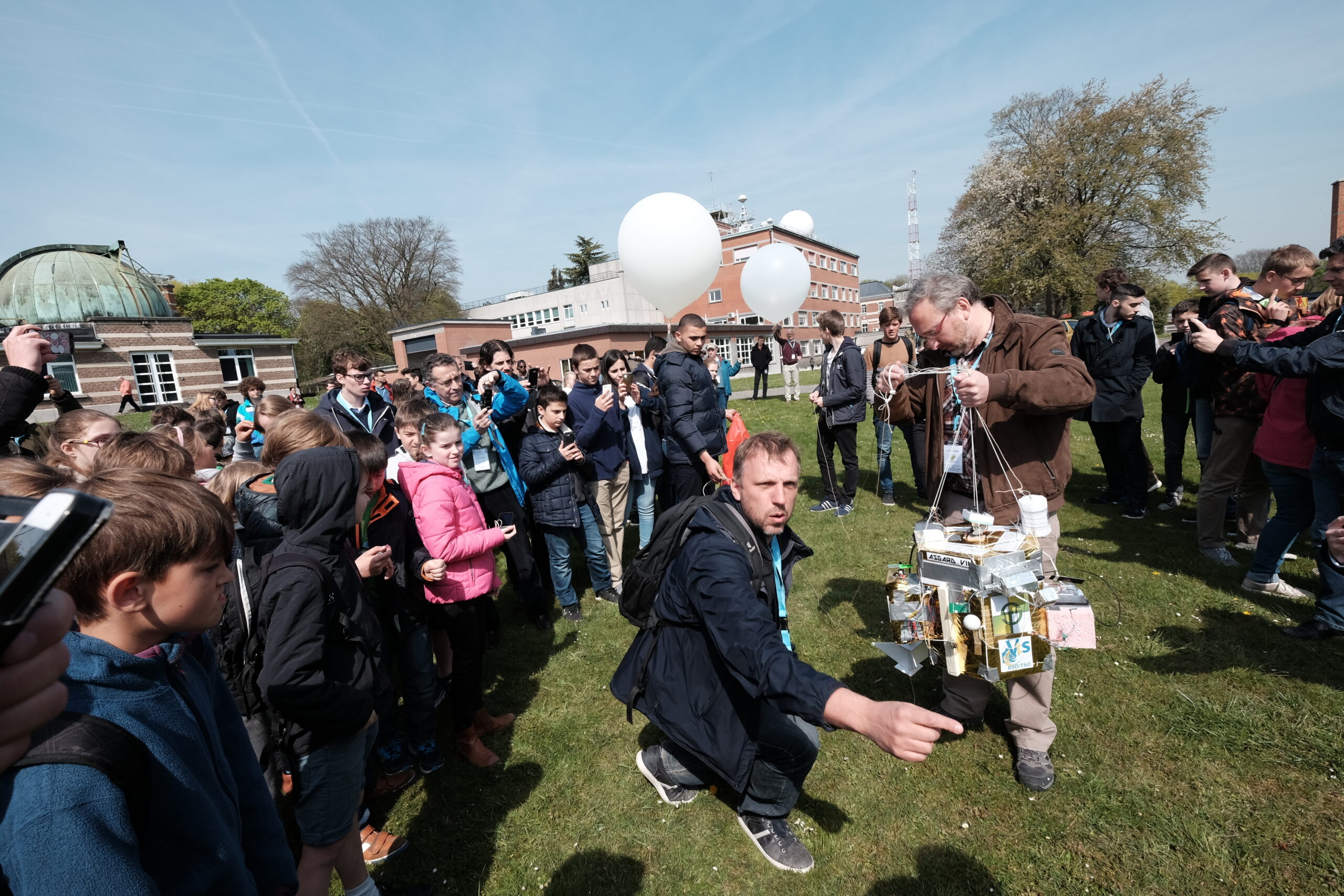
FOR THE TEACHER
- On the page “ASGARD in detail” you will find all the necessary information.
- Each year, we publish an update of the extended ASGARD Manual, produced and updated by organisor and ASGARD specialist Erik.
- On the page “Inspiring ASGARD teams” you will find many examples of ASGARD experiments made by students of previous years. Let them inspire you to find a good project for your own team.
- Each year, ESERO Belgium organises at least 1 training session for teachers (this year online on 27/09/2023). Go to our trainings to find get information.

Interested? Find out about the other ASGARD pages:
- ASGARD in detail: Every detail you need to know for partcipation : calendar, instructions, manual, donwloads, links, practicals, FAQ, etc. – In English
- Inspiring ASGARD teams: examples and testimonies of other teams – in English
- ASGARD Facebook page (this years edition) – in English
- ASGARD for primary schools – in Flemish and French
